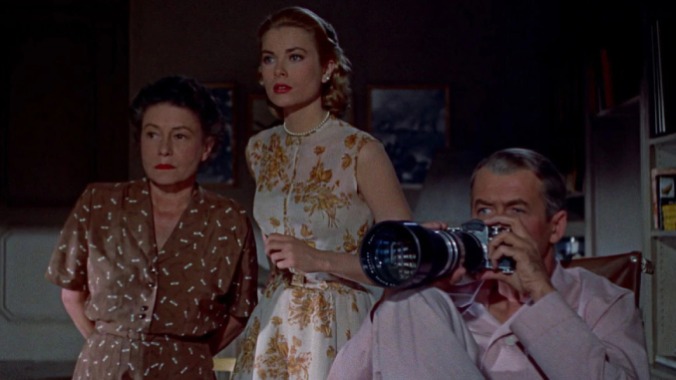Film School: Thelma Ritter
Subscriber Exclusive

Welcome to Film School! This is a column focused on movie history and all the stars, filmmakers, events, laws and, yes, movies that helped write it. Film School is a place to learn—no homework required.
There’s only one actor in film history to have stolen scenes from Bette Davis, Jimmy Stewart, Marilyn Monroe, Ginger Rogers, Grace Kelly, Burt Lancaster, Rock Hudson, Barbara Stanwyck and Doris Day. That actor was a 5’1” middle-aged woman, and her name was Thelma Ritter.
Thelma Ritter didn’t arrive in Hollywood until she was 42 years old, when family friend, director George Seaton, asked her to make a single scene appearance in his 1947 movie Miracle on 34th Street. Although she didn’t even receive an on-screen credit, her performance was enough to leave an impression on mogul Darryl F. Zanuck, who cast her in another brief, uncredited role in the Jimmy Stewart vehicle Call Northside 777 (the first of three films Stewart and Ritter would make together) the following year.
Her career progressed steadily for the next few years, with Thelma Ritter making a very big impression in very small roles. By 1950, she’d built up enough of a reputation to have screenwriter Joseph L. Mankiewicz (brother of Herman) write a part for her in All About Eve. She earned her first Oscar nomination for her performance as Bette Davis’ maid, and would go on to garner five more, but she’d never actually come out on top; six nominations without a win still stands as a record today in the Best Supporting Actress category. (One imagines she’d have a lot to chat about with Glenn Close…)
In the four decades before she became a household name, Thelma Ritter had had a busy, full life, raising her kids and appearing on stages both prestigious and decidedly less so. One year, during the Depression, her and her husband’s only income came from prizes they won in radio competitions (all that experience inventing jingles for household goods eventually led to him becoming a successful ad man.). While she’d been interested in acting since she was a child, and had studied at the renowned American Academy of Dramatic Arts, by the time she made it in the movies, she’d been around the block many a time, and was not afraid to show it. (A newspaper article from 1963 described her as, “Like an old shoe—but with a lovely, lustrous shine”).
And more than anything else, that was what audiences responded to in her performances. Thelma Ritter, who kept her thick Brooklyn accent throughout her movie career, was repeatedly cast in the working class roles of maids, nurses, secretaries and mothers. She was the audience surrogate in the truest sense of the term; a recognizably real, lived-in face striding confidently through a forest of perfect glamazons and Greek gods. She made you feel sure that, while the stars had been living their lives in front of us, she’d been living her own just as vividly off-screen.
Her best roles really emphasized her hard-earned street smarts. In 1953’s Pickup on South Street, she plays Moe: a stool pigeon whose one ambition in life is to earn enough money to avoid an anonymous burial in Potter’s Field. Even though she makes her living by turning them in, Moe’s well-respected by her fellow down-and-outs. “Moe’s alright…she’s gotta eat,” acknowledges Richard Widmark’s pickpocket Skip, whose location Moe ultimately refuses to divulge to the bad guys, at the cost of her life. The Samuel Fuller film argues that there is, in fact, honor among thieves, and Ritter’s Moe is the face of it.
-

-

-

-

-

-

-

-

-

-

-

-

-

-

-

-

-

-

-

-

-

-

-

-

-

-

-

-

-

-

-

-

-

-

-

-

-

-

-

-








































